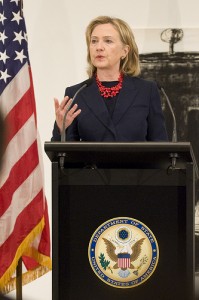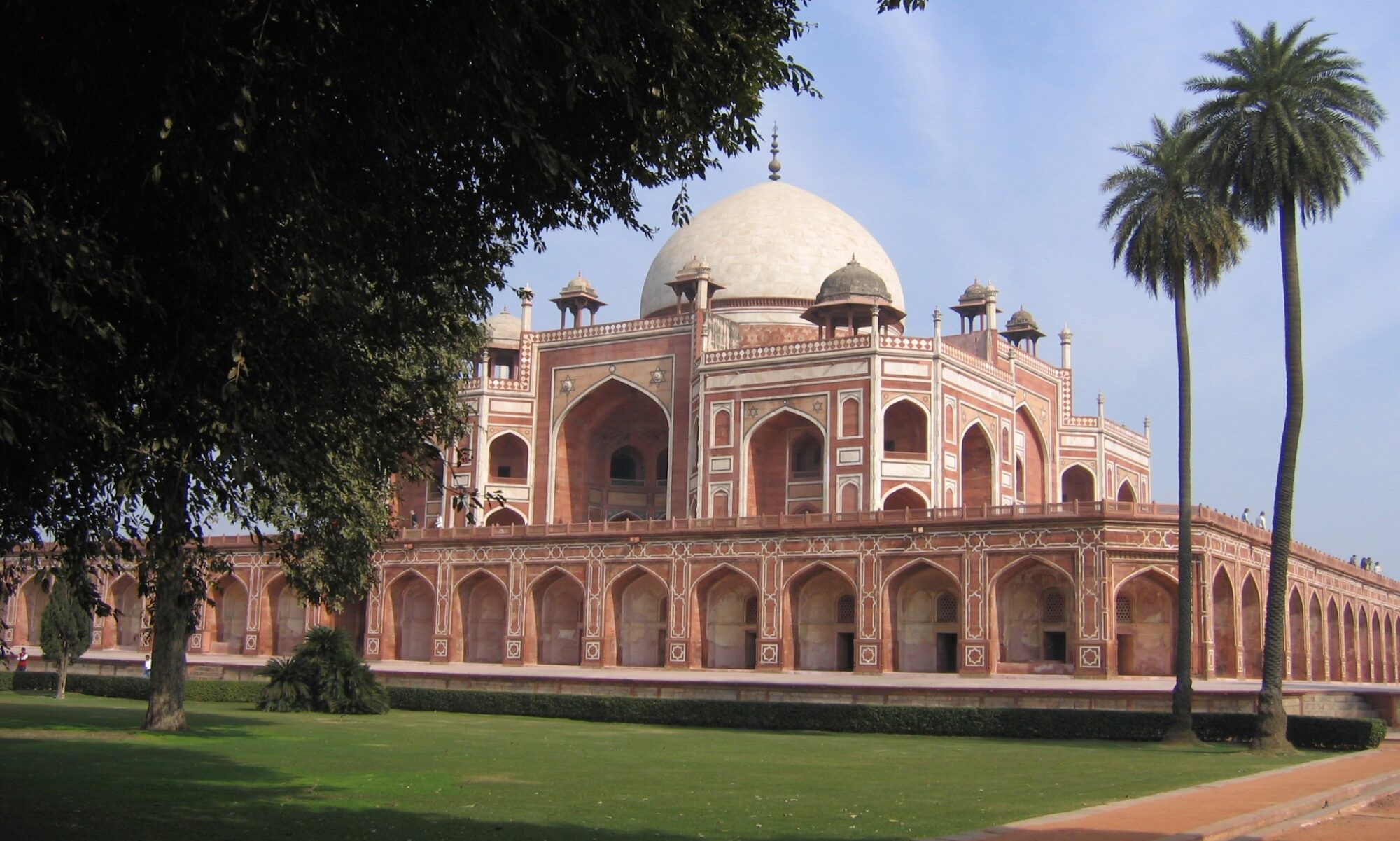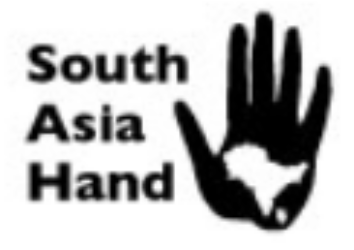
May 11, 2012: After the tumult that surrounded her visit to Beijing, when Chinese dissident activist Chen Guangcheng’s defection stole center stage, Secretary of State Hillary Clinton’s 20-hour stopover in Dhaka must have been a welcome change of scene. The visit provided a highly successful public diplomacy spotlight on U.S.-Bangladesh relations and showed Hillary Clinton at her most engaging. It also provided an opportunity for quiet discussions about some of the problems that are likely to intensify as Bangladesh navigates an increasingly turbulent and controversial pre-election period.
Mrs. Clinton, who visited Bangladesh as first lady in 1995, has long had a warm interest in the country. She particularly admires its leadership role in microfinance, its pioneering work in the development of non-government organizations (NGOs), and the vibrancy of its civil society. And, for their part, most Bangladeshis are eager to receive senior American leaders, to whom they look for sympathy and support. The rabid anti-American sentiment found in Pakistan and many other Muslim countries is much less prevalent in their corner of the Islamic world. What’s more, visits by senior officials are rare events; this makes them even more welcome. Only a handful of secretaries of state have journeyed to Bangladesh. Ironically, the first to do so was Henry Kissinger. It was Kissinger who, when told earlier that an independent Bangladesh would be a basket case, famously snorted, “But not our basket case.”
Mrs. Clinton’s brief visit was in no way a rest stop between her travails in China and her subsequent appointments in India. As she invariably does on her frequent foreign travels, she took on a challenging program. Among its high points were sessions with Prime Minister Sheikh Hasina Wajed; Hasina’s bitter rival, former Prime Minister Begum Khaleda Zia, the leader of the opposition; and Foreign Minister Dipu Moni. She also had a private but well-publicized meeting with Muhammad Yunus, founder and former managing director of the Grameen Bank, and Sir Fazle Hassan Abed, who heads another renowned Bangladeshi NGO, BRAC. She held a long press conference and spoke and fielded questions at a well-attended open meeting of Bangladeshi youth leaders. In both these public appearances, especially the one with the young people, she again displayed that easy ability to connect with a variety of audiences that has been a major feature of her stewardship of Foggy Bottom and a big plus for U.S. public diplomacy.
The secretary was able to showcase several areas where Bangladesh had helped advance key aspects of U.S. development goals. She expressed U.S. admiration for Bangladesh’s interest in becoming a land-bridge between South and East Asia. The Hasina government’s enthusiasm for this “connectivity,” which includes a politically courageous effort to improve relations with India, fits well with the Obama administration’s approach of looking at these two adjoining regions as part of a greater Asian whole — and shaping its policies accordingly. Mrs. Clinton congratulated Bangladesh for its major contributions to international peace-keeping forces. She stressed American efforts to work together with Bangladesh to help meet its most pressing challenges, from health care to food security to climate change. Bangladesh receives funding through U.S. “global initiatives” in each of these areas. Washington’s annual economic assistance to Dhaka totals some $200 million. This makes Bangladesh the largest U.S. aid recipient in South Asia except, understandably, for Afghanistan and Pakistan.
With Foreign Minister Moni, Mrs. Clinton also launched a “U.S.-Bangladesh Partnership Dialogue.” This is part of an effort to institutionalize bilateral discussions, which have recently included high-level discussions on security. The dialogue will be a conducted at a less lofty level and are likely to be less comprehensive than U.S. strategic dialogues with India and, until recently, with Pakistan.
But aside from lauding their accomplishments, Mrs. Clinton also offered some friendly home truths to the Bangladeshis about some of the problems their country now faces. These include increasing political violence as the government and opposition gird for parliamentary elections due at the end of next year. Prospects that these elections will come off well seem increasingly poor. The opposition has rejected Hasina’s changes in the constitutional arrangement for elections. These will no longer be conducted as they have for years by a short-lived, neutral caretaker administration. Instead, the government in power, i.e. Sheikh Hasina’s, will remain in office and a supposedly independent election commission will supervise the contest. The opposition has charged that elections under such an arrangement would not be free and fair (Bangladesh political history strongly suggests it is right) and has vowed to boycott unless the changes are rescinded.
In this poisonous political atmosphere, worsened by the recent disappearance of a major opposition figure, the secretary publicly and privately called on both sides to work together. In return she no doubt got from the contending leaders the litany of complaints and self-justification so familiar to diplomats who have dealt with the Bangladesh domestic political scene. The impact of her plea is likely to be limited, unfortunately, and all these problems are likely to become more strident and more acute as the parliament’s five year term reaches its close at the end of 2013. It was important to put the United States on record with all sides.
The secretary also spoke up against rising industrial labor unrest and violence. This has included the unsolved murder of a prominent union leader. She pointed out that these problems could damage foreign buyers’ confidence in the country’s key garment industry, a major supplier to the U.S. market. She warned publicly: “[Y]ou don’t want to get a place where labor leaders and activists are murdered or where people are taken advantage of or abused in poor working conditions, because in today’s world, that will cause big manufacturers of clothing to be afraid to stay or come to Bangladesh.” She urged the government, the garment industry, and labor organizations to work together.
Another important matter for the secretary was the fate of the Grameen Bank, the famous microfinance institution founded by Muhammad Yunus, who until last year was its managing director. Washington had reacted very badly when the Hasina government forced out Yunus, whose accomplishments had won him a Nobel Peace Prize and made him Bangladesh’s sole Nobel laureate (as well as the principal organizer of Mrs. Clinton’s previous visit to Dhaka as first lady). For some time the issue topped Washington’s Bangladesh agenda and badly soured relations.
The issue had derailed previous Clinton plans to visit Bangladesh, but in the end she decided to go although the process of selecting a new managing director remains murky and Washington’s concerns about the bank’s future have not been allayed. In dealing with the issue, Mrs. Clinton chose her words carefully: Referring to Yunus as a “national treasure” whom she had known and admired for twenty-five years, she declared in answer to a question: “We do not want to see any action taken [by the Bangladesh government regarding the bank] that would in any way interfere with the operations of Grameen Bank or its unique organizational structure where the poor women themselves are the owners.” She said that she hoped “the process for identifying a new independent and respected managing director will be carried out expeditiously and transparently.” Her meeting with Yunus was doubtless designed to call attention to Washington’s continuing interest in the issue and its dissatisfaction with his ouster. (Abed’s inclusion in the meeting was probably meant to soften the blow, at least marginally.)
Bangladesh had less success in advancing its own agenda. It sought enrollment in the Millenium Challenge Account, which makes eligible for expanded economic assistance countries that meet certain political, economic, and social standards. It renewed its longstanding call for duty-free, quota-free access to U.S. markets for its garment exports. And it asked again for the repatriation from the United States of one of the convicted 1975 killers of the nation’s founder, Sheikh Mujibur Rahman, the father of Sheikh Hasina. It was unsuccessful in all of these quests.
These setbacks should have come as no surprise to the Bangladeshis. But neither the diplomatic shortfall nor Mrs. Clinton’s own blunt talk on sensitive issues appears to have lessened Bangladeshi pleasure with the fact that the secretary of state found time to include Dhaka on her crowded itinerary. Both the government and the opposition were reportedly very happy with the visit. Public reaction apparently was also very favorable.
So too was reaction in Washington. Before he too became secretary of state, Lawrence Eagleburger used to advise his Foreign Service colleagues in his typically wry and caustic way that “all high-level trips are successful.” But in our experience, few such short visits have been as enthusiastically hailed at the State Department. One senior official described it to us as “a huge home run.”
We suspect that few other secretaries of state could have been as effective. For her skill in dealing with these out-of-the-way encounters, as well as her other accomplishments, Hillary Clinton will be sorely missed when she leaves office in the next few months.
Howard B. Schaffer


Great get such a reasoned and fair appraisal. Many thanks!